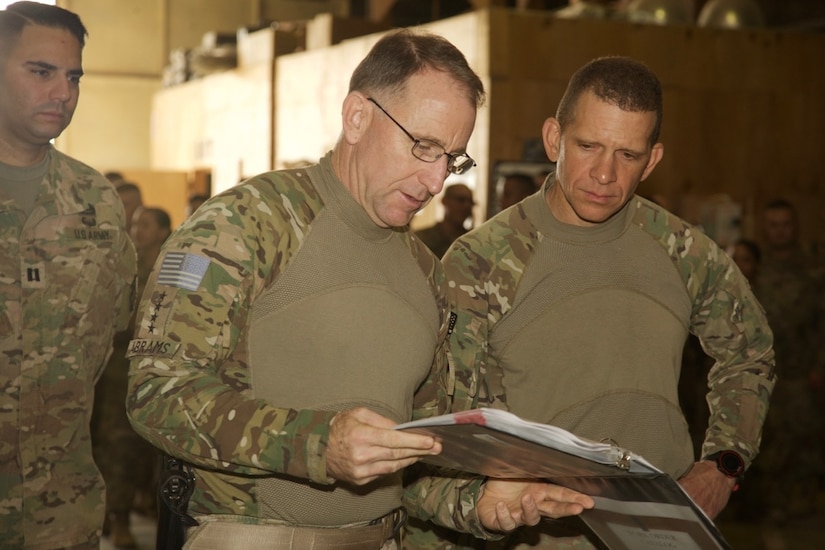By Jim Garamone, DoD News, Defense Media Activity
WASHINGTON -- The North Korean military remains dangerous,
and U.S., South Korean and allied forces on the Korean Peninsula “should remain
clear-eyed about the situation on the ground and allow diplomacy to continue to
work,” President Donald J. Trump’s nominee to be the next commander of U.S.
forces in Korea told the Senate Armed Services Committee at his confirmation
hearing today.
Army Gen. Robert B. Abrams, now the commander of U.S. Army
Forces Command, is the president’s
nominee to replace Army Gen. Vincent K. Brooks as the commander of the United
Nations Command, Combined Forces Command and U.S. Forces Korea.
If confirmed, Abrams would go to a peninsula in a state of
flux. The historic meeting between Trump and North Korean leader Kim Jong Un
changed the calculus, and this is a critical time. What happens in North Korea
– will they indeed denuclearize – affects South Korea, Japan, China and all of
Northeast Asia.
“The strategic importance of the Pacific region has grown
over the past decade,” Abrams said. “The foundation for success in Northeast
Asia is largely due to the extraordinary relationships we have built over time
with United Nations sending states and our Indo-Pacific neighbors, particularly
Japan and the Republic of Korea.”
Working with allies is key to what happens on the peninsula,
and Abrams said he would continue that process. “Our strong combined military
power with the Republic of Korea has sustained armistice conditions for 65
years and supported our diplomatic and economic efforts today,” he said.
Since the armistice of 1953, alliance forces have been ready
“to fight tonight,” the general said, and the allies must maintain that
credible deterrent “to preserve options for our elected leaders.”
Command Priorities
Abrams endorsed the four long-standing command priorities:
sustaining and strengthening the alliance, maintaining the armistice, transforming
the alliance, and sustaining the force. “I believe these priorities remain
relevant, but if confirmed, I will … make my own assessment on the way forward,
and I will keep this committee informed of my conclusions,” he said.
The general said he would describe the situation today as “a
temporary pause and a general feeling of detente, if you will, on the
peninsula.”
North Korea has not made a major provocation for more than
300 days, and dialogue has taken place on many levels among the United States,
South Korea and North Korea. This includes military-to-military talks between
the United Nations Command and the North Korean army at the senior officer
level – the first in 11 years.
Given this encouraging news, the allies still need to
maintain readiness, Abrams said. North Korea is a significant asymmetric and
intercontinental threat, he told the Senate panel, noting that it still has the
fourth-largest conventional army in the world.

No comments:
Post a Comment